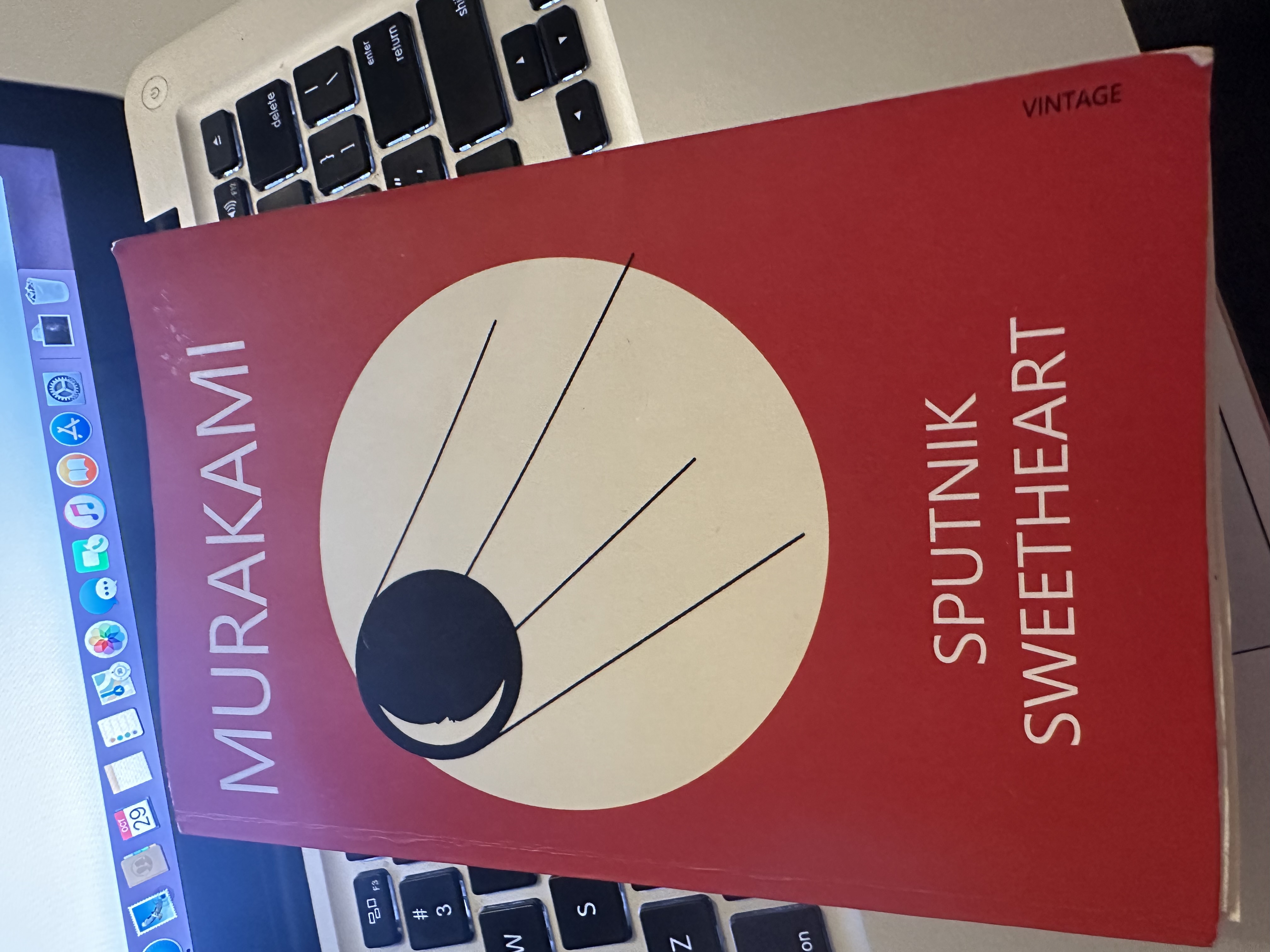Sputnik Sweetheart - Haruki Murakami
What I couldn’t stand while reading this book were cigarettes. Rest everything was proportionately out of order as expected. I personally was suffocated upon imagining the protagonist smoking so often that I had to put the book down many times to gulp in some fresh air. Sumire minus cigarettes otherwise was my dream character - an aspiring writer, curious, out of place, carefree, intelligent, seeker, unconventional - I think you get it!
I planned to read ‘Kafka on the Shore’ before picking ‘Sputnik Sweetheart’. However, given the size of that book and the time I had in hand, I picked a slimmer one. I have turned to fiction after a long time and this is my second Japanese literature in a row. I believe the first twenty to thirty pages decide whether the book will hold your attention till the end. I decided it positively for this book within the first five to ten pages. The first few lines that hit my mind were -
“...but if I can be allowed a mediocre generalization, don’t pointless things have a place, too, in this far-from-perfect world? Remove everything pointless from an imperfect life and it’d lose even its imperfection.”
Reading Murakami, felt like reading something far from as well as very close yet hidden from the human realm. This book was first published in 1999, and I am sure much is already said and discussed about the text, story and its style. Since it was my first Murakami book, many things came to me mostly as a reminder and I’d like to talk more about it. While getting to know the main characters, somewhere in the beginning, Miu happens to ask Sumire,
“What sort of practical skills you have. What you’re especially good at. Other than reading a lot of novels and listening to music.”
That’s something real, it’s been a while since I have thought about it!
Many people live within a person, I believe. But what happens if all those people split into separate individuals altogether, where would you find yourself? Will a certain part of you move to some unreachable, unknown parallel world? - an indirect question posed by the book that keeps me wondering. Another thing that strikes me about the novel is its word in general.
“Every story has a time to be told, I convinced her. Otherwise you’ll be forever a prisoner to the secret inside you.”
“If I do tell you the story, the two of us will always share it. And I don’t know if that’s the right thing to do.”
And an important aspect of the book, a striking, unforgettable simile between ‘Sputnik’ and the travel partners -
“And it came to then. That we were wonderful traveling companions, but in the end no more than lonely lumps of metals on their own separate orbits. From far off they look like beautiful shooting stars, but in reality they’re nothing more than prisons, where each of us is locked up alone, going nowhere. When the orbits of these two satellites of ours happened to cross paths, we could be together. Maybe even open our hearts to each other. But that was only for the briefest moment. In the next instant we’d be in absolute solitude. Until we burned up and became nothing”
To end my writeup, I’d like to mention one of the best definitions of explanation and understanding I’ve read in a long time.
“Any explanation or logic that explains everything so easily has hidden trap in it.”
“Understanding is but the sum of our misunderstandings.”
Read the book not just for a twisted story, and narration, but for the psychological quest, and mental substance. I am sure to revisit the book sometime soon.
Review by: Nazneen Siraj Kachwala

Leave a comment